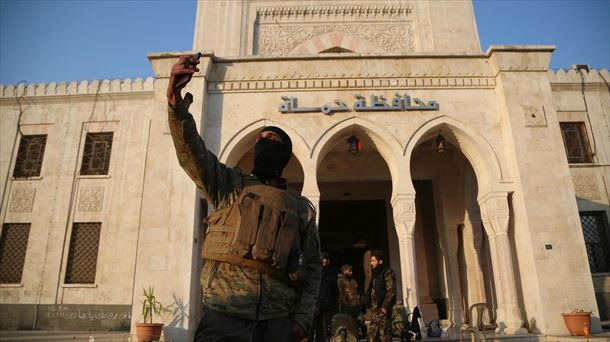Access to and maintenance of housing remains the greatest difficulty for the people served, with the most complicated situation being that of migrant families and single mothers.
Caritas Euskadic presented its report of the year today 2021, a year still marked by the Covid-19 pandemic, a context of crisis that has affected all areas of society and people.
As Ramón Ibeas, general secretary of Cáritas Vitoria, explained at a press conference: Severe poverty has increased by three points to 9% in the Basque Countryshowing that Basque society is increasingly “divided”.
In general, he has acknowledged that the trend in the number of actions “is weakening” every year, but with greater intensity in the intervention, and has given the example of Álava where the numbers say that “it is better, but who is bad is worse we have taken in fewer families, but with more intensity,” he summed up.
Last year, in the Basque Autonomous Community, Caritas participated in a total of 32,429 people, of which 17,116 are women and 15,313 men. There are 4,800 more people (17.5% more) than the year before 2020, in which 27,608 people were served from Cáritas Euskadi.
Gipuzkoa was the area where more people joined Cáritas in 2021, 15,351, 6,327 more than the year before. In Bizkaia they have supported 12,569 people (527 less than in 2020) and 4,509 people in Álava (979 less).
The entity has invested about 7 million euros of economic aid, of which 3.5 million in Bizkaia, almost 3 million in Gipuzkoa and 0.4 million in Álava.
Caritas counted in 2021 with 3612 volunteers Gipuzkoa and Álava have seen their list of volunteers decrease, a decrease that compensates for the increase in the number of companions from Bizkaia, thus maintaining the number of volunteers from the previous year.
Main difficulties
Maite Sebal, director of Cáritas Vitoria, has the main difficulties where the accompanied families are located and has access and maintenance of the residence as one of the biggest problems. Ibeas has even warned of the possibility that it could lead to another economic bubble in the near term.
Second, there are the difficulties of families with minors in their care to access a function and combine it with the care of children, especially single parents. He also mentioned the difficulties in obtaining good quality employment and in regularize their administrative situation
Sebal has mentioned two consequences of the covid pandemic: on the one hand, the increase in digital divide as an element of exclusion, both for the elderly and for immigrants, and on the other hand the increase in situations of loneliness and isolation
The report, which they have mentioned ‘Generating Opportunities’ aims to making visible the efforts of the people helped by Cáritas to get out of their situation and they have appealed to flee from the stereotypes that surround them: “From our experience of guiding and working with people, we can trace their efforts to get ahead: become active in job search, receive training, improve their skills, play sports, take care of the family, share knowledge, concerns, ideas and actions,” they assure of the entity.
(function(d, s, id) {
var js, fjs = d.getElementsByTagName(s)[0];
if (d.getElementById(id)) return;
js = d.createElement(s); js.id = id;
js.src = “//connect.facebook.net/es_ES/sdk.js#xfbml=1&version=v2.8”;
fjs.parentNode.insertBefore(js, fjs);
}(document, ‘script’, ‘facebook-jssdk’));
Source: EITB
I’m Wayne Wickman, a professional journalist and author for Today Times Live. My specialty is covering global news and current events, offering readers a unique perspective on the world’s most pressing issues. I’m passionate about storytelling and helping people stay informed on the goings-on of our planet.



